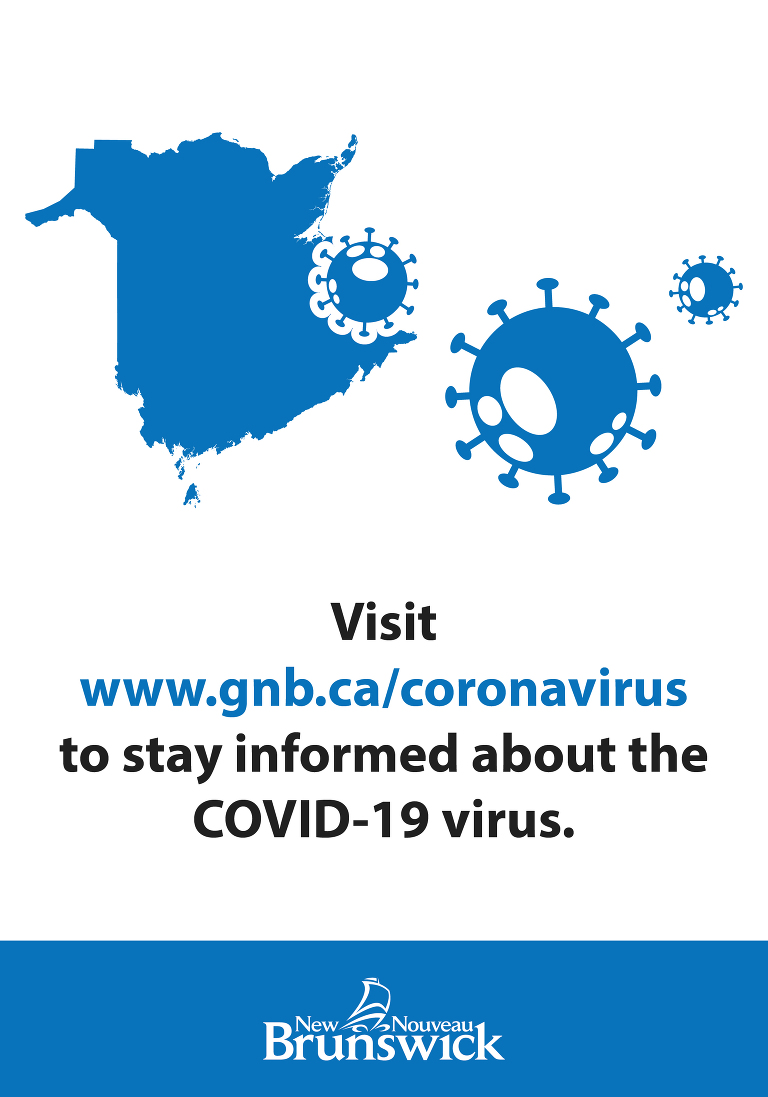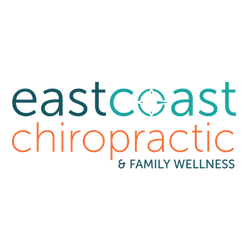For nearly two years, we have all been impacted by the COVID-19 pandemic. This has been a difficult time for everyone, but parents have been hit especially hard. We have struggled with the adjustment of having our children learn from home for certain periods of time. We have also dealt with anxiety about our children’s safety when sending them back to school.
Recently, we learned the good news that Health Canada has approved the Pfizer-BioNTech mRNA COVID-19 vaccine, which has also been known as Comirnaty since September, for children five to 11. You can now book an appointment for your child through the Government of New Brunswick website.
I know many parents and guardians will have questions and concerns before vaccinating their children. This makes complete sense, as we all want to make good decisions to support our family’s health. I want to ensure parents have all the information they need to make the best and most well-informed choice.
Before the pandemic began, most of us had never heard of mRNA vaccines. Because this is an unfamiliar term, some people were worried about this technology. Now that the vaccine is approved for use in children five and older, some people have raised concerns about whether it is safe for young people.
Firstly, this technology is not entirely new. Researchers have been studying and working with mRNA vaccines for decades to explore whether they could be used to treat everything from the flu to Zika to rabies. These vaccines have also been used to trigger the immune system to target certain cancer cells in studies since 2011.
It is also important to know that the development of these vaccines was not rushed. Vaccine developers worked with scientists around the world to gather scientific data at the same time. This unprecedented level of global cooperation was possible because of the urgency of responding to the pandemic.
Thanks to the years that researchers have spent testing this technology, mRNA vaccines were able to complete all clinical trial stages and be licensed to immunize against COVID-19 less than a year after the pandemic began.
To explain how messenger ribonucleic acid (mRNA) vaccines work in simple terms, they essentially teach your cells how to make a protein that will trigger an immune response. The mRNA molecule is like a recipe that tells the cells of your body how to make a spike protein to protect against COVID-19.
Some people may have heard incorrect information about the effects of mRNA vaccines. For example, you may have heard rumours that these vaccines can change a person’s DNA. This is false and has no scientific basis. In fact, the vaccine does not enter the nucleus of our cells where our DNA is located.
I want to assure parents that the COVID-19 vaccine has been thoroughly tested and has been found to be safe for children five and older. Health Canada is recognized internationally for its independent drug review process and bases its decisions on scientific and medical evidence that shows the vaccine is safe and effective.
Before the COVID-19 vaccine even reached the review stage by Health Canada, it was tested through a series of clinical trials. For months, studies have been conducted with children five to 17. These studies have confirmed the vaccine is safe for young people and have also determined the most effective dose for different age groups.
In the case of children five to 11, a smaller dose was found to be most effective, compared to the larger dose given to people 12 and older. Children five and older still need to get two doses of the vaccine, eight weeks apart, to maximize their protection against COVID-19.
Fortunately, the studies found the vaccine is very effective at preventing children from developing COVID-19 with symptoms. One week after receiving their second dose, the clinical trials showed that the vaccine was 90.7 per cent effective for children five to 11.
Of course, many children do not like getting a needle, and it can be difficult as a parent to see your child experiencing fear or distress. You can help make the process a bit easier by bringing your child’s favourite toy to their appointment, or by distracting them with a phone or a book. You can also put a numbing cream on your child’s deltoid area, so they don’t feel as much discomfort. Kids like to have some control, so let them choose which arm.
As with any vaccine, it’s very common to have temporary side effects. These can last a few hours to a few days after vaccination. This just means that your child’s body is having a natural response, as it is working hard to build protection against the virus. Your child may have a sore arm, redness or swelling at the site of the injection. They may also experience flu-like symptoms, such as chills, fatigue, joint pain, headache, mild fever or muscle aches. If any side effects last longer than 72 hours, you should report them to your child’s health-care provider.
Serious symptoms are very rare, but you should call 911 in the unlikely event your child experiences respiratory distress, hives or swelling of the face, tongue or throat after leaving the clinic. Anaphylactic allergic reactions, although rare, usually occur within 15 to 30 minutes of vaccination which is why you are asked to stay to be observed after the vaccination. Please be reassured that the vaccine does not contain nuts, eggs, shellfish or gluten.
When the COVID-19 pandemic began, we saw that it typically affected older people and children were generally not severely impacted. But as more variants of concern have emerged, we have seen an increase of COVID-19 cases in young people. While some of those cases are mild and asymptomatic, some children get very sick from the virus. In addition, we still do not fully know all of the potential long-term effects the virus may have on those who have been infected.
It’s also important to keep in mind that, while the symptoms of COVID-19 may be less severe for kids, the mental impact on them is significant. Because of the pandemic, children have had to miss out on in-person school, and they’ve had to reduce the time they spend with their friends. This has led to children experiencing increased stress and negative impacts on their mental health. By choosing to vaccinate your child, you can ensure they are able to continue with their daily routines and will not have to worry about missing out on important events and activities.
Vaccinating your child against COVID-19 also helps to reduce the spread in the community for individuals who are at risk of experiencing severe illness, such as the elderly and immunocompromised individuals. In addition, it helps protect younger siblings under the age of five who are not yet eligible to be vaccinated.
The vaccine is safe and effective in preventing major illness, hospitalization or death from COVID-19. By choosing to vaccinate your whole family, you are playing an important role in helping New Brunswick move through the fourth wave and beyond the pandemic.
You may still have questions about COVID-19 vaccines, and that’s wonderful! It’s important to be educated and well-informed when making decisions about your children’s health. Just make sure you get your information from a trusted and reliable source, like your health-care provider. You can also learn more from the following trusted links:
- Pfizer-BioNTech Comirnaty® vaccine regulatory information
- Vaccine development and approval in Canada
- COVID-19: How vaccines are developed (video)
- COVID-19 mRNA vaccines
- Effectiveness of the Pfizer-BioNTech Comirnaty vaccine was in trials
- COVID-19 Information for the Public
- Pfizer-BioNTech Comirnaty COVID-19 vaccine
- Get the facts | COVID-19 vaccines
- Vaccines for children: COVID-19
- Vaccine safety and possible side effects
- Ask the Expert video series: COVID-19 vaccine questions
.png) Dr. Rachel Ouellette was born and raised in Fredericton, NB. She grew up with 3 brothers and both her parents were social workers in town. She graduated from Ecole Sainte-Anne in 1998 and pursued Biochemistry at UNB, followed by Psychology at STU. She completed medical school at Memorial University of NL and then finished her Paediatric residency at Queen’s University. Dr. Ouellette then returned home to practice General Consulting Paediatrics in 2011. Rachel loves her community and enjoys connecting with other community service people who share her passion for helping kids; whether it is in schools, counselling services, etc.
Dr. Rachel Ouellette was born and raised in Fredericton, NB. She grew up with 3 brothers and both her parents were social workers in town. She graduated from Ecole Sainte-Anne in 1998 and pursued Biochemistry at UNB, followed by Psychology at STU. She completed medical school at Memorial University of NL and then finished her Paediatric residency at Queen’s University. Dr. Ouellette then returned home to practice General Consulting Paediatrics in 2011. Rachel loves her community and enjoys connecting with other community service people who share her passion for helping kids; whether it is in schools, counselling services, etc.
Rachel is a mother to two young boys. She admits she entered motherhood self-assured and naïve. She thought she knew babies and kids and had definitely worked in sleep deprived situations. Rachel was humbly shocked, realizing what a BIG, difficult and confusing job being a mom can be! She battled through painful breastfeeding, she found out what it was really like to experience prolonged sleep deprivation (you can’t turn off the pager at the end of your shift). She even had to sit on the “other side” in a few medical situations. Motherhood has definitely affected how she practices medicine since she’s returned from maternity leave. There is a “Mama” (& “Papa”) instinct that isn’t taught in medical school. It cannot be studied in textbooks or reviewed in parenting books. As a parent, you know your child best, and you understand your child’s cues. Health care professionals need to really listen to the parent & child to reach the right diagnosis and initiate the right treatments.
Dr. Ouellette realizes there is so much information available to eager parents. Dr. Google can be helpful sometimes, but it mostly just causes worry and is filled with inaccurate information. It can be confusing and difficult to make parenting choices when, not only do you have so much information online, but there is typically (often unsolicited) advice and suggestions from friends, family, other moms and random people in grocery store line ups. Dr. Ouellette is not providing any new advice; she is summarizing and sharing information from legitimate medical sources that are usually supported by scientific research. This information is always advancing; even advice written this year, may not apply next year if new studies reveal new information. Dr. Ouellette hopes she can provide up to date, brief, succinct answers to common Paediatric or parenting questions. She is open to topics, so please share your requests with the Mom Talk Blog editors.
.png)




















